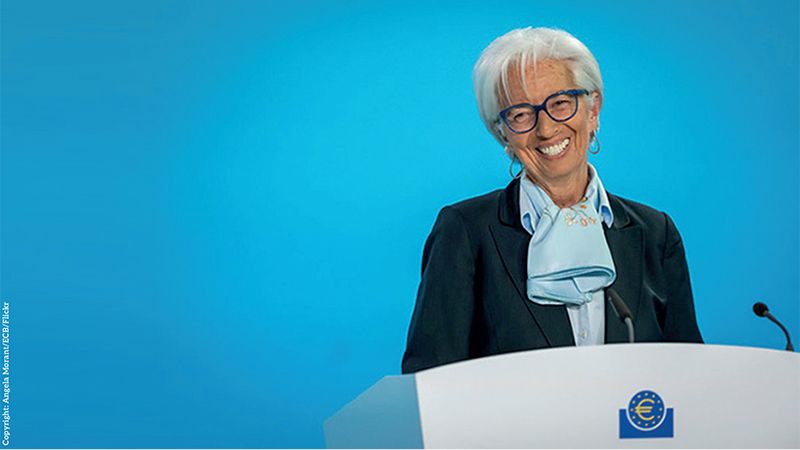The European Central Bank (ECB) elected to hold rates in its 11 April meeting while ECB president Christine Lagarde noted that inflation looks likely to hit its 2% target in 2025.
The ECB has held rates at their highest level in over two decades since September 2024, with main refinancing operations at 4.5%, marginal lending facility at 4.75%, and deposit facility at 4%.
The rate decision came after inflation decreased to 2.4% in March 2024 from 2.8% in February and 3.1% in January.
Des Lawrence, senior investment strategist at State Street Global Advisors, said domestic inflation, led by service inflation, was one of the main areas of concern for the ECB.
“Services inflation is itself quite sensitive to wage inflation – hence the ECB’s focus on wage developments. We think the ECB can continue to prepare the market for a rate cut at its June meeting. Barring any significant surprises on the incoming wage and inflation data we believe it can probably deliver about 100 basis points of policy cuts this year,” he added.
While the ECB said it was “not pre-committing to a particular rate path”, in Lagarde’s press conference following the rate decisions, she commented, “We are not going to wait until everything goes back to 2% to make the decisions that will be necessary”.
Gurpreet Garewal, macro strategist of fixed income and liquidity solutions for Goldman Sachs Asset Management, added that the ECB “continues to signal” for summer rate cuts as long as labour markets and inflation stay on pace.
“We advocate an overweight position in European rates versus other markets, as both the growth and inflationary environment favour a rollback of restrictive policies. However, as the US experience shows, rate paths are data-dependent, necessitating a dynamic approach to duration exposures,” Garewal said.
While inflation in the eurozone has been on a downward slope, the US consumer price index rose 0.4% in March, with year-on-year inflation at 3.5%. The US increase yesterday (10 April), caused hesitation for the June rate cuts markets had predicted for the Fed.
Nick Sheridan, portfolio manager on the European equities team at Janus Henderson, said: “Yesterday saw US CPI surprise to the upside, reducing market expectations for both the number and timing of US interest rate cuts. Today’s announcement by the ECB kept interest rates steady but acknowledged that inflation was falling.
“Although the much-hedged statements given today by ECB president Christine Lagarde left markets believing European interest rates may fall over the summer, the chance that the ECB will be reducing interest rates ahead of the Federal reserve has increased. The last time the ECB and the Fed were moving in different directions was March 2016 when Europe saw reducing rates as US rates started to move up. The likely effects of such cuts include the euro weakening against the dollar and oil prices (priced in USD) increasing, so the ECB still has a balancing act to finesse.”
All eyes now on June
The next decision for the ECB will come in June, when there will also be an influx of inflation data to inform the choice.
Michael Field, European market strategist for Morningstar, added: “After recent comments from the Federal Reserve about potentially putting the brakes on US rate cuts for the time being, all eyes were on the ECB’s statement today to ascertain whether the Fed’s reservations would have any impact on future interest rate decisions in the eurozone. Thankfully for European investors it seems the ECB is happy to go it alone. The language in the statement is sufficiently vague but does not indicate that the ECB is backing away from cutting rates as soon as June.
“We believe this course of action is entirely pragmatic given the economic backdrop in Europe. Economic growth is weak, with the ECB forecasting just 0.6% growth this year. Meanwhile, inflation slowed to 2.4% in March, putting it within touching distance of the ECB’s targeted 2% level. We’ve come a long way from the 10.6% highs in inflation witnessed just 18 months ago, and at this point lower interest rates seem appropriate.”







